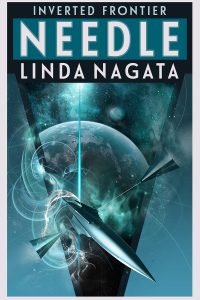Paul Di Filippo reviews Elan Mastai
All Our Wrong Todays, by Elan Mastai (Dutton 978-1-101-98513-7, $26, 384pp, hardcover February 7, 2017
 When a writer from outside the genre decides to write SF (and it gets marketed as mainstream), they usually favor a subset of stefnal tropes, usually the softer ones: time travel, dystopia, or counterfactual. You seldom see, say, a writer like Martin Amis attempting an alien invasion story, or an Alice Hoffman dealing with, oh, undersea colonization or galactic empires. Artificial intelligence might perhaps be a slightly hard-edged exception, as in Richard Powers’s Galatea 2.2. But that’s because it allows for exploration of such classic humanistic themes as the nature of the soul, Frankensteinian hubris, etc.
When a writer from outside the genre decides to write SF (and it gets marketed as mainstream), they usually favor a subset of stefnal tropes, usually the softer ones: time travel, dystopia, or counterfactual. You seldom see, say, a writer like Martin Amis attempting an alien invasion story, or an Alice Hoffman dealing with, oh, undersea colonization or galactic empires. Artificial intelligence might perhaps be a slightly hard-edged exception, as in Richard Powers’s Galatea 2.2. But that’s because it allows for exploration of such classic humanistic themes as the nature of the soul, Frankensteinian hubris, etc.
Of all the favored fantastika tropes beloved by the generally mimetically inclined author, time travel has lately been experiencing a mini-boom, as with The Lost Time Accidents by John Wray (review here). The latest entry in this trend, All Our Wrong Todays, happens also to be a debut novel. And it proves to be a great and exceptional find, so let’s give it a gander.
The first thing to note is that although Mastai might very well have been raised outside strict genre borders, he exhibits a playful fluency with, and is creatively savvy about, all the genre appurtenances and furniture. His does not make a single misstep with his speculations or language. This degree of sophistication probably just goes to show that the tropes and novums of the field have thoroughly saturated our culture to the point that inside/outside distinctions are becoming less and less meaningful.
Another thing to note before diving into the plot is that Kurt Vonnegut is referenced admiringly early on by our hero-narrator, and this tip of the hat induces us to read the book as deliberately Vonnegutian in purpose and tone—a not unfair description, I think. Its short chapters, its punchy, demotic, self-denigrating prose, its tragicomic ambiance resulting in genuine catharsis and epiphany, and its general fascination with the ways humans can screw up—all these are pure Vonnegut.
Here’s the scenario. The year of our opening action is 2016, but a 2016 on an alternate timeline. This particular year resembles the future of Gibson’s “The Gernsback Continuum” or that utopian mirage depicted in George Clooney’s Tomorrowland. A Campbellian “yesterday’s tomorrow” made real. This world got there because in 1965, an infinite free power source, the Goettreider Engine, was developed.
Our protagonist is Tom Barren, son of a genius named Victor Barren. Tom is kind of a schlub and nowhere guy, all too conscious of his inferiority in the light of his dominant genius father. The elder Barren, by the way, has recently invented time travel. Just to give his pitiful offspring something to do, Professor Barren enlists his son as a backup chrononaut. Through a long sequence of events, which I shan’t spoil, Tom becomes the first person to employ the machine—unofficially—and he journeys back to the day when the Goettreider Engine was first tested. He manages to botch the test and taint the Goettreider Engine with permanent failure, thus erasing his own timeline.
But Tom himself, miraculously, does not pop out of existence as part of the aborted future. Instead, he wakes up in our timeline, inhabiting the body of his doppelganger, John Barren. The two avatars share impossibly divergent, bipolar memories—John’s life has followed a vastly different course, naturally, than Tom’s—but Tom seems temporarily the dominant personality. Naturally, no one believes his tale. So he sets out to prove the truth of his assertions. This involves tracking down Lionel Goettreider, and attempting to reboot his pivotal invention. But what Tom discovers is that his native timeline is not the only one striving to be reborn.
Mastai achieves any number of excellent things here. Enumerated in no particular order:
He portrays the disjunction between Tom’s native 2016 and our version—“political chaos, social dysfunction, technological incompetence, and putrid toxicity”—with acid humor and insight. And then at the end he manages to invert the value judgments about which timeline is better and offers more potential for the human future. Actually, not to give too much away, the winning solution is a hybrid of both timelines.
Next, Mastai conjures up a great character in the person of Tom, a fellow of no obvious great talents yet whose heart is in the right place—at least by book’s end. Tom’s love for Penelope/Penny Weschler in both timelines is his ultimate redeeming feature. Additionally, a complicated romance involving Goettreider runs fruitfully in parallel.
Third, we get all the elaborate paradoxes and causal loops that any great time travel novel must offer. Mastai lives up to classics such as Heinlein’s “By His Bootstraps.”
Lastly, Tom’s musings and eventual enlightenment on the nature of science-fictional or futurism-derived dreaming and striving taps deep into the core of how we chart and plan and reify humanity’s course. Mastai believes we have an obligation to pilot a course “between futurist manifest destiny and apocalyptic ruin.”
His comedic, clever, sometimes silly, sometimes tragic, and ultimately morally resonant tale illustrates exactly the kind of value and utility science fiction has always delivered, and must continue to deliver. His next novel is eagerly awaited, on this or any other continuum.




